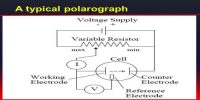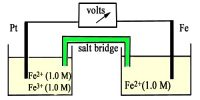The partial pressure is the pressure which the gas would have if it filled the same volume by itself. The total pressure of a gas mixture is the sum of the partial pressures of each individual gas in the mixture. It can be seen from the ideal gas equation that the partial pressure of a gas is proportional to its concentration (also referred to as molarity M).
Changing the amount of reactants and products will affect the concentrations in the Reaction Constant, Kc expression, and hence the Kc value. Kc will thus decrease at higher temperatures for exothermic reactions. Similarly, Kc increases at higher temperatures for endothermic reactions.
Consider the reaction below with associated enthalpy:
N2 (g) + O2 (g) ↔ 2NO (g), ΔH = +197.5 kJ.mol-1
i. What would be the effect on the position of the chemical equilibrium of the following – increasing the temperature? Shift equilibrium to the right
– decreasing the temperature? Shift equilibrium to the left
ii. How would each of these temperature changes affect the value of Kc?
– increasing the temperature? Kc will increase
– decreasing the temperature? Kc will decrease.













